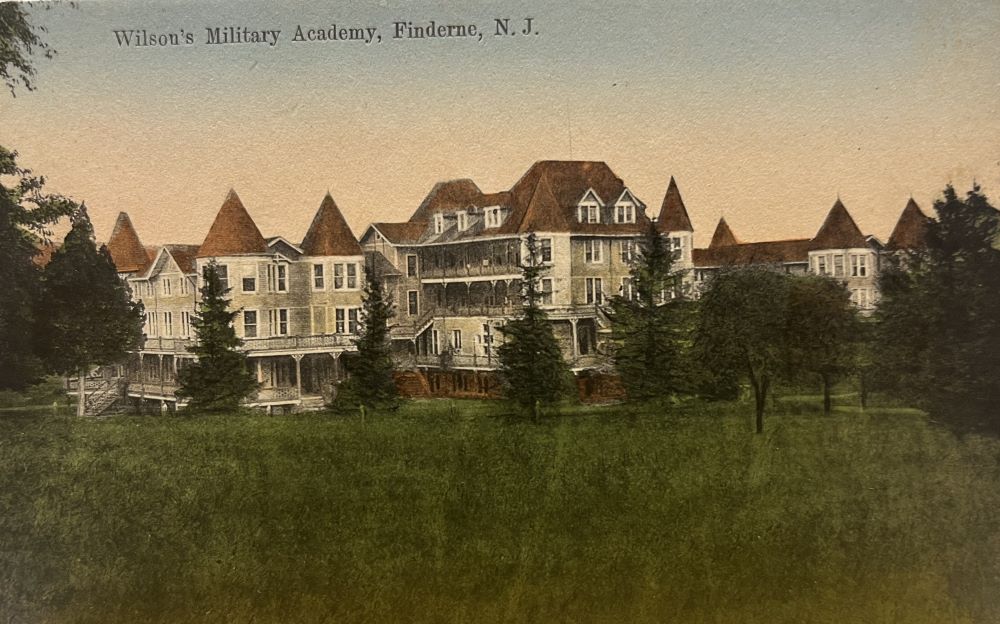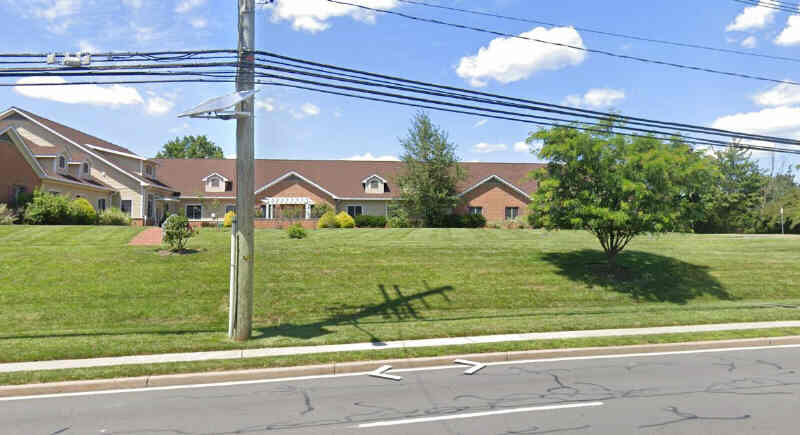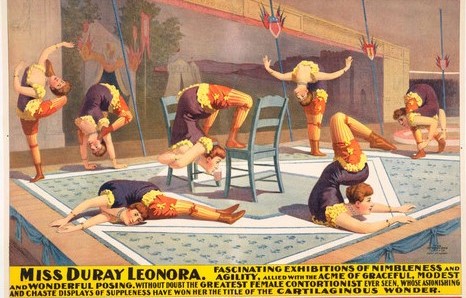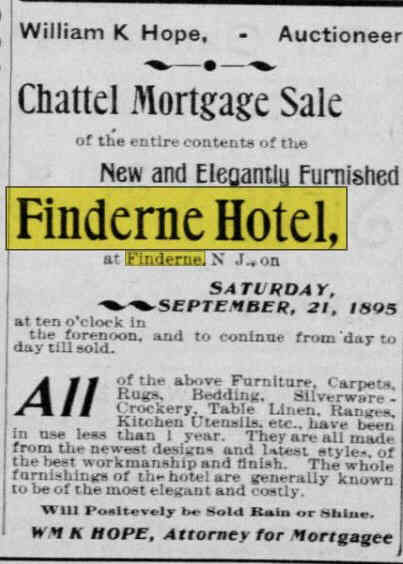By Bruce Doorly

Seeking more information, I found that not much has been written about it besides the fact that it burnt down in 1912. But using old local newspapers as sources I was able to piece together the story of this academy and the building that it occupied.
Old issues of the “Courier News” are available online at Newspapers.com and old issues of the now defunct weekly the “Somerset Messenger Gazette” are available on microfilm at the Bridgewater library.

Written descriptions say that the hotel was on a hill. The only existing hill, small at that, is across from the People Care Center which is toward Route 28.
Finderne Hotel & The Wilson Military Academy

The hotel took two years to build. It was an impressive hotel with (too) many rooms and entertainment facilities. In an era of few electric lights, the hotel at night was a spectacular site that could be seen for miles around. Nighttime riders on the train line (which was a half mile south) would always look for it.
At a glance, the five-story building was stunning. But the construction was said to be poor and it was such a fire threat that John C. Shaw could not find anyone to issue a fire insurance policy on it
reference to the hotel from 1894

A brass band would entertain throughout the nights - keeping the crowd dancing. And special fascinating entertainers were hired as well. Miss Duray Leonora, a contortionist, gave nightly exhibits, demonstrating various ways that she could twist her body. Another entertainer “Youna - the Juggler Extraordinary” also delighted the crowds on multiple nights.

The local population, who flocked to attend the open houses, had little need for any hotel stay. In addition, the vision of John C. Shaw of the hotel being mainly a summer destination was obviously flawed - as what about the non-summer months?
After just one year, in 1895, the Finderne Hotel was deemed a failure and an auction was held for the contents of the place – furnishings, bedding, carpets, lamps, silverware, etc. While John C. Shaw would sell the contents, he retained ownership of the building.
By 1897 he was able to rent out the hotel on a five-year lease. But by 1902 the new version of the hotel seemed to have failed again as a newspaper announcement said that the hotel building would be now rented as a sanatorium – a home for the insane. But it is doubtful that it ever opened as there are no further documented references to it.

It was under the operation of Captain Joel Wilson who was a Captain during the Civil War. His second in command in recent years was his son Lieutenant L. Merle Wilson.

The Finderne location had immense athletic fields and drill grounds for infantry, artillery, and cavalry. It had stables with horses and ponies for use by the cadets. There was a half-mile track for horses.
The 55 students all resided there. They came from all around including South America, Mexico, Puerto Rico, England, and various states across the U.S. The cadets were equally distributed among all ages. Yearly tuition was $400.
The academy became a proud part of the local community. The older boys competed in baseball, basketball, and football against the local high schools - Bound Brook, Plainfield, and Rutgers Prep.

The academy had planned for a fire with rehearsed procedures among the cadets. They had four lines of fire hoses in the building each with its own five-thousand-gallon water tank. But the fire spread too rapidly.
The newspaper said it was a frame building with an interior finish of yellow pine and it burned like a tinder box. Soon the blaze could be seen for miles around. Within two hours, all that remained of the main school building complex was a chimney.

The only injury was to Lieutenant L. Merle Wilson who received bad burns on his arms when he tried to put out the fire when it was just in the one room.
It was said that the military discipline taught at the school was responsible for the orderly evacuation. The stables with the horses and the nearby home of John C. Shaw were saved due to the heroic firefighting actions of the cadets.

In the fall, the academy relocated to Madison NJ.
Today the fact that a military academy was once located in Bridgewater is known by just a small percentage of people. But perhaps this article will increase awareness that this proud institution was once located in Bridgewater.